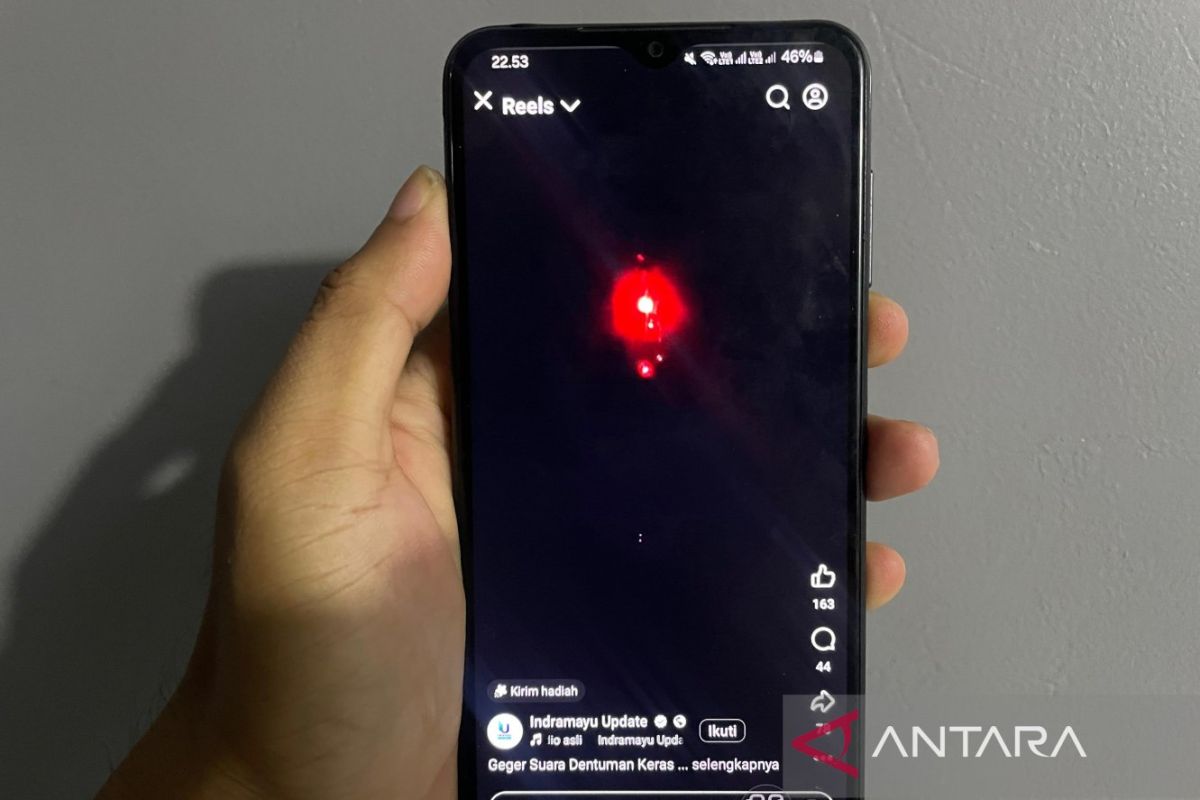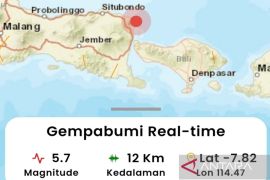"I concluded that it was a fairly sizeable meteor that passed by," he stated on Monday.
According to Djamaluddin, the meteor crossed the Kuningan and Cirebon districts, West Java, from the southwest before falling into the Java Sea on Sunday (October 5), between 18:35 and 18:39 local time. (UTC+7).
He explained that the loud booming sound was generated as the meteor entered the lower atmosphere.
"When it entered the lower atmosphere, it created a shock wave, resulting in a booming sound. This was detected by the Cirebon Meteorology, Climatology, and Geophysics Agency (BMKG) at 18:39:12 local time," he said.
Djamaluddin emphasized that the explosions and lights observed by the public posed no danger.
The phenomenon was witnessed by residents on Sunday evening around 18:30 in several sub-districts of eastern Cirebon, particularly in the Lemahabang area.
BMKG’s seismic sensor, coded ACJM, recorded significant vibrations at 18:39 local time. Surveillance camera footage also captured the fireball falling at 18:35.
Several residents reported seeing the fireball streak across the sky before vanishing into the distance, followed by a loud bang.
Related news: BRIN develops eco-friendly, more efficient organic solar cells
Related news: BRIN developing high-tech observatory in NTT
Translator: Sean Filo Muhamad, Katriana
Editor: Aditya Eko Sigit Wicaksono
Copyright © ANTARA 2025












